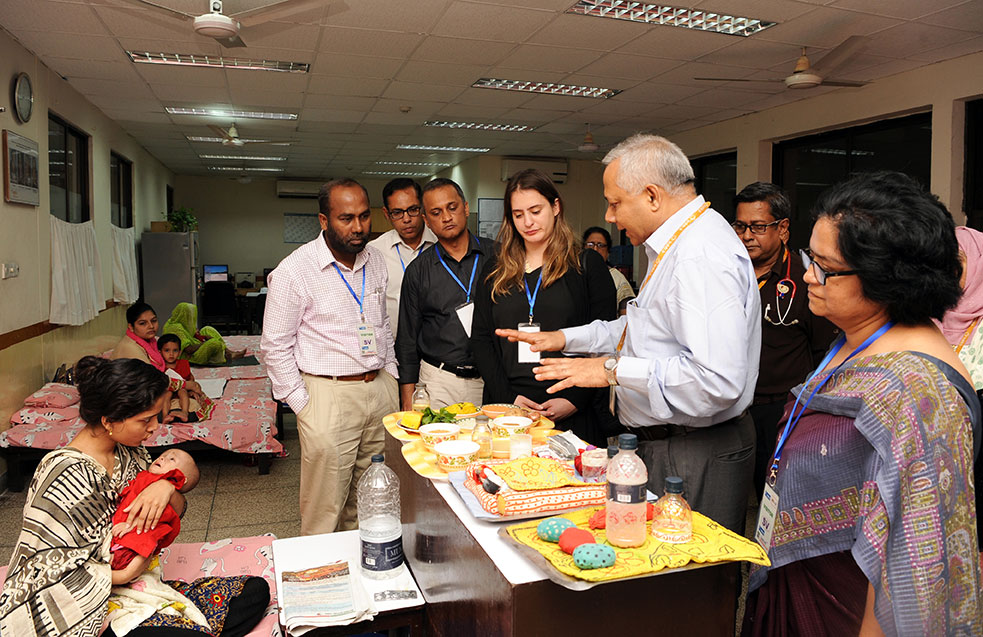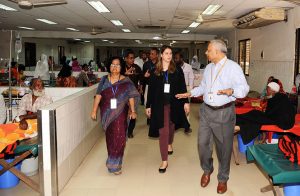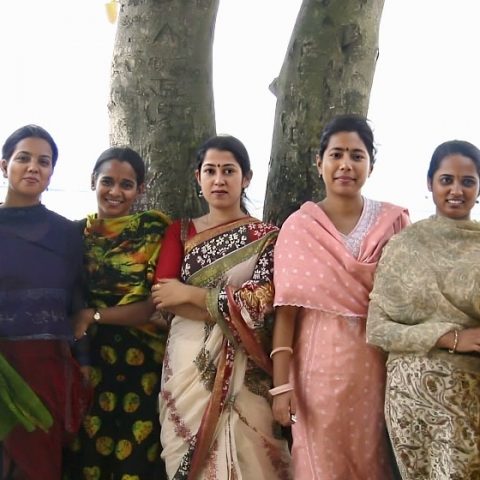This week, a delegation from USAID Bangladesh visited icddr,b to experience the organisation’s pioneering and successful journey since inception and learn more about the USAID’s Research for Decision Makers (RDM) Activity, a five-year implementation research project that icddr,b has been implementing since May 2017.
The RDM Activity aims at generating evidence and promoting the use of evidence in policy and planning for the effective implementation of current health sector programme and is assisting USAID’s country cooperation strategy.

Dr Tahmeed Ahmed, a senior director at icddr,b explaining to the USAID Bangladesh the use of therapeutic food for malnutrition
During the visit, the delegation met with icddr,b’s senior leaders and scientists and was warmly welcomed by deputy executive director Mr Syed Monjurul Islam. The visiting team enjoyed a brief presentation on icddr,b by one of the senior directors Dr Tahmeed Ahmed, which included information about the organisation’s innovative and inexpensive local solutions to various health problems that are helping save lives, specially of those living in the developing countries. They also discussed how icddr,b interventions are helping strengthen the health systems of the country.

Dr Tahmeed Ahmed showing the USAID Bangladesh team around the hospital
The USAID team, led by Ms Ariella Camera, deputy director, Office of the Population, Health, Nutrition and Education (OPHNE), USAID, included Mr Sanjib Ahmed, clinical services technical specialist, OPHNE; Mr Niaz Chowdhury, project management specialist, OPHNE; Mr Azmal Hossain, project management specialist, OPHNE; Dr Samina Choudhury, project management specialist, OPHNE; and Dr Kanta Jamil, senior monitoring, evaluation and research advisor, OPHNE.
After the meeting, the delegation walked around different wards of icddr,b hospital and received firsthand demonstrations on few of the centre’s recent innovations like the ready-to-use therapeutic food to treat child malnutrition and ultra low cost bubble CPAP (continuous positive airway pressure) to cure children suffering from pneumonia.
Historically, the United States has a long standing relationship with icddr,b as the US Government was one of the 32 signatories to the 1978 ordinance that forwarded the motion to change the name of the then Cholera Research Laboratory to icddr,b (International Centre for Diarrhoeal Disease Research, Bangladesh) as it is commonly known by today.
Commending icddr,b’s work in public health over the years, Ms Ariella Camera said: “The organization has an amazing research team. USAID will continue partnering with icddr,b to advocate for better health of the people.”
Dr Shams El Arifeen, a senior director of icddr,b and Chief of Party of the RDM Activity appreciated USAID’s commitment to icddr,b’s research initiatives, saying: “USAID’s support has been invaluable to icddr,b. We hope this collaboration will continue to grow more in future.”

